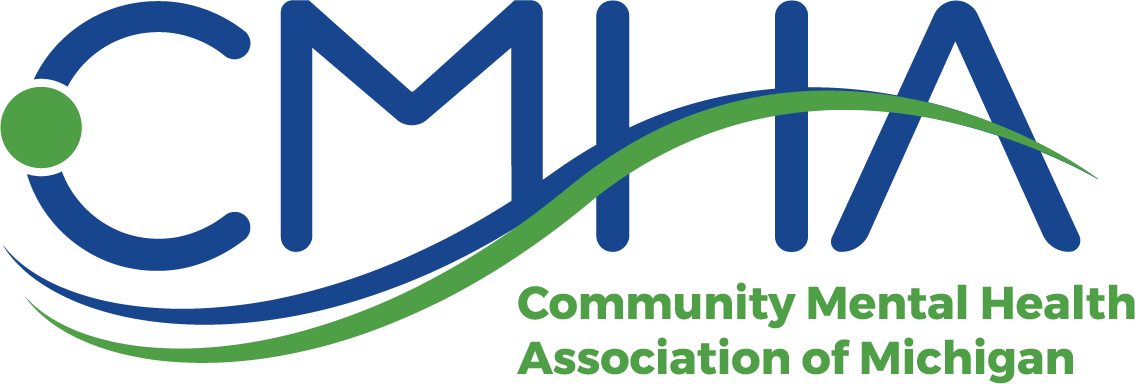Home and Community Based Services Final Rule
By Salli Christenson, Project Coordinator, The Arc Michigan
The Home and Community Based Services (HCBS) Final Rule is an awkwardly named, yet vitally important, federal Medicaid regulation. With the goals of optimizing autonomy and inclusion, the HCBS Rule requires that Medicaid beneficiaries receive certain services in settings that are integrated into the community. It also mandates choice of services and service providers. The HCBS Rule applies to all settings funded through Medicaid HCBS programs.
A group of individuals with intellectual and developmental disabilities (I/DD) in Michigan is working to educate communities statewide about the HCBS Rule and its impact on long-term services and supports. The Home and Community Based Services (HCBS) Leaders as Trainers project is funded via a grant from the Michigan Developmental Disabilities Council (MDDC). The project is being implemented by the Michigan Developmental Disabilities Institute (MI-DDI) in collaboration with The Arc Michigan. It is administered by MI-DDI.
Five Michigan citizens directly affected by the HCBS Rule were hired late last year to provide peer-to-peer training to others with I/DD, as well as families. The HCBS Trainers first participated in intensive learning themselves, and then helped to develop educational materials. The resulting combination of knowledge about HCBS policy, effective teaching methods, and the value of lived experience is a potent one and the HCBS Trainers have been in demand since the project commenced.
The team of trainers reflects the diversity of people with I/DD, in regard to race, ethnicity, type of disability, age, living arrangements and life experience, to name but a few characteristics.

Blake Perry has been a disability rights leader and advocate for decades. He is politically engaged, with a particular interest in housing issues. He says, “Being a person who has received services, I understand the barriers in place that make it hard for people with disabilities to live where they want.” He hopes the HCBS project will “open the door and help people think differently about what people with disabilities are capable of”.
Julie Fitzsimons is a lifelong Michigander, animal lover, and major Beatles fan. She says she pursued a role in the HCBS project because she believes “everyone deserves the same treatment no matter how they are. I want the project to help people with disabilities to see they should be treated like everyone else. It will help people live independently. I’m all about equality.” She adds, “I also wanted to become a trainer because I wanted a new avenue to explore, away from my mundane job” at a sheltered workshop.
Jamie Junior is a seasoned activist, with a strong interest in greater financial inclusion and literacy within the disability community. She says, “Any services that allow individuals to live independently and have control over their life and how they live it are very important. I am a huge believer in the benefit of peer-to-peer engagement. As a person who has received services and is now a parent of a child with a disability, I know how powerful it can be.” Jamie has extensive experience as a speaker and trainer and is currently the chief operating officer of Warriors on Wheels of Metropolitan Detroit.
Alex Kimmel is an accomplished speaker and advocate. Known as “The Self Determinator”, he promotes a message of inclusion and the presumption of competence. He says, “Everyone should know about how to lead the life they want and have a good life. I want everyone to gain an understanding that having a disability in and of itself has no bearing on how successful and fulfilling life can be.” Alex cites the values of “dignity, freedom, respect and privacy” as essential to individual rights and self-determination.
Leonardo Bravo is a student who is passionate about individual rights for people with disabilities and the importance of advocacy. He says, “I wanted to become an HCBS Trainer to bring awareness to people about the Rule and how they can use it to meet their needs. My hope for this project is to have everyone with a disability become more aware of their rights and for the next generation of people with disabilities to become more active members of society.” As a bilingual speaker of Spanish and English, Leonardo has the ability to share his message to a wide audience.
Despite the personal and professional challenges posed by the Covid-19 pandemic, this quintet of Trainers have given numerous and well-received presentations over the past several months. They quickly mastered the Zoom platform in order to continue bringing the message of choice, freedom and self-determination to their peers. Three local project coordinators, listed below, provide technical, logistical and administrative support to the team and can be reached for more information about the project or to schedule a training.
